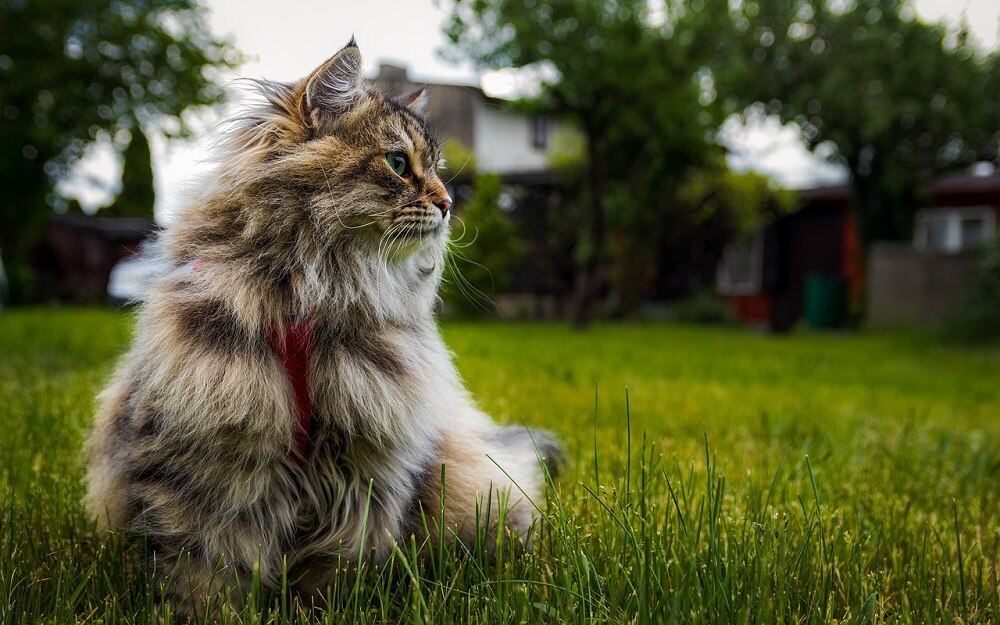Siberian cats are known for their majestic appearance, affectionate nature, and hypoallergenic qualities, making them a popular choice among cat enthusiasts. While these cats are generally healthy and robust, it’s essential for owners to be aware of potential health issues to ensure their furry friends lead long, happy lives. This article delves into common health problems in Siberian cats, preventative measures, home care tips, and more to help you provide the best care for your feline companion.
Common Health Issues in Siberian Cats
Hypertrophic Cardiomyopathy (HCM)
Hypertrophic cardiomyopathy (HCM) is a common heart condition in cats, including Siberians. It involves the thickening of the heart muscle, which can lead to heart failure if not managed properly.
Symptoms:
- Rapid or labored breathing
- Lethargy
- Loss of appetite
- Sudden collapse or fainting
Causes and Prevention: While HCM can be hereditary, regular veterinary check-ups can help in early detection. Genetic testing can also be considered for breeding cats to reduce the risk of passing the condition to offspring.
Obesity
Obesity is a growing concern among domestic cats and can lead to several other health issues such as diabetes, arthritis, and heart disease.
Risks:
- Increased risk of diabetes
- Joint and mobility issues
- Shortened lifespan
Prevention Tips:
- Feed a balanced diet with controlled portions
- Encourage regular exercise through play
- Monitor weight regularly
Allergies
Siberian cats can suffer from various allergies, including food, environmental, and flea allergies.
Symptoms:
- Itching and scratching
- Skin redness or inflammation
- Digestive issues like vomiting or diarrhea
Treatment Options:
- Identifying and eliminating allergens
- Using hypoallergenic cat food
- Regular flea prevention treatments
Dental Issues
Dental problems are common in cats and can lead to more serious health issues if not addressed.
Common Problems:
- Gingivitis
- Periodontal disease
- Tooth decay
Prevention and Care Tips:
- Regular dental check-ups
- Daily tooth brushing with cat-specific toothpaste
- Providing dental treats and toys to help clean teeth
Polycystic Kidney Disease (PKD)
PKD is a genetic disorder that causes cysts to form in the kidneys, potentially leading to kidney failure.
Symptoms:
- Increased thirst and urination
- Weight loss
- Poor appetite
Diagnosis and Management:
- Ultrasound can help in early detection
- There is no cure, but a special diet and medication can help manage symptoms
Gastrointestinal Problems
Siberian cats can experience various gastrointestinal issues such as hairballs, vomiting, and diarrhea.
Common Issues:
- Hairballs
- Food intolerance
- Inflammatory bowel disease (IBD)
Treatment Suggestions:
- Regular grooming to reduce hairballs
- Feeding a high-fiber diet
- Consulting a vet for persistent issues
Preventative Measures
Regular Vet Check-Ups
Routine veterinary visits are crucial in maintaining your cat’s health. Regular check-ups can help in the early detection of health issues, ensuring timely treatment.
Recommended Vaccinations
Vaccinations are essential in preventing infectious diseases. Your vet can provide a vaccination schedule tailored to your cat’s needs, typically including:
- Rabies
- Feline leukemia
- Feline distemper
Healthy Diet and Exercise
Maintaining a healthy diet and regular exercise routine is vital for your Siberian cat’s overall well-being. Provide high-quality, balanced cat food and engage your cat in interactive play to keep them active.
Home Care Tips
Grooming
Siberian cats have a dense, triple-layered coat that requires regular grooming to prevent matting and reduce shedding.
Tips:
- Brush your cat at least twice a week
- Use a wide-toothed comb to detangle and remove loose hair
- Bathe your cat occasionally to keep their coat clean and healthy
Dental Hygiene
Maintaining dental hygiene at home can prevent many dental issues.
Tips:
- Brush your cat’s teeth daily
- Use dental treats and toys
- Schedule regular dental check-ups with your vet
Safe and Stimulating Environment
Creating a safe and stimulating environment is essential for your cat’s mental and physical health.
Tips:
- Provide scratching posts and cat trees
- Use interactive toys to keep your cat engaged
- Ensure your home is free of toxic plants and substances
When to See a Vet
Recognizing the signs that indicate your cat needs veterinary attention is crucial.
Symptoms Requiring Immediate Attention:
- Difficulty breathing
- Persistent vomiting or diarrhea
- Sudden weight loss or gain
- Changes in behavior or appetite
- Visible signs of pain or discomfort
Choosing a Veterinarian
Choosing a good veterinarian ensures your cat receives the best care possible.
Tips:
- Look for a vet with experience in feline care
- Read reviews and get recommendations from other pet owners
- Visit the clinic to assess cleanliness and staff friendliness
Conclusion
Proactive health management is key to ensuring your Siberian cat lives a long, healthy life. By understanding common health issues, taking preventative measures, and providing proper home care, you can help your feline friend thrive. Stay informed and consult your veterinarian regularly to address any health concerns.
FAQs
Q1: How often should I take my Siberian cat to the vet?
A1: Adult cats should visit the vet at least once a year for a check-up. Kittens and senior cats may require more frequent visits.
Q2: What is the best diet for a Siberian cat?
A2: A balanced diet with high-quality protein is essential. Consult your vet for specific dietary recommendations tailored to your cat’s needs.
Q3: Are Siberian cats prone to any specific genetic disorders?
A3: Siberian cats can be prone to hypertrophic cardiomyopathy (HCM) and polycystic kidney disease (PKD). Regular vet check-ups and genetic testing can help manage these risks.
Q4: How can I prevent hairballs in my Siberian cat?
A4: Regular grooming, feeding a high-fiber diet, and providing hairball remedy treats can help prevent hairballs.
Q5: What signs indicate that my Siberian cat might have dental problems?
A5: Signs of dental problems include bad breath, difficulty eating, drooling, and inflamed gums. Regular dental check-ups can help prevent these issues.

